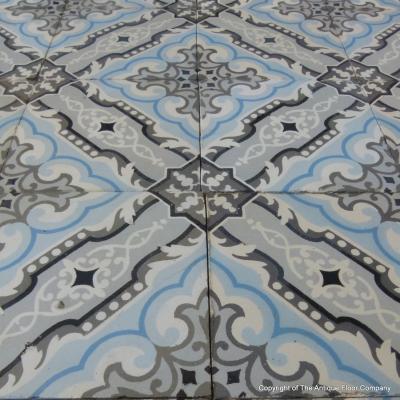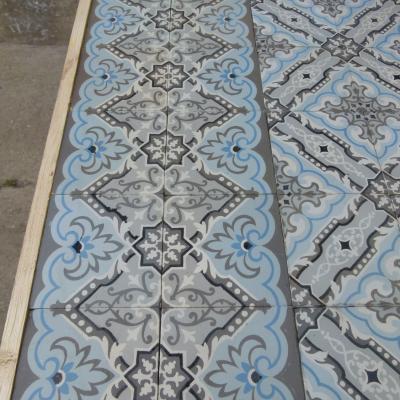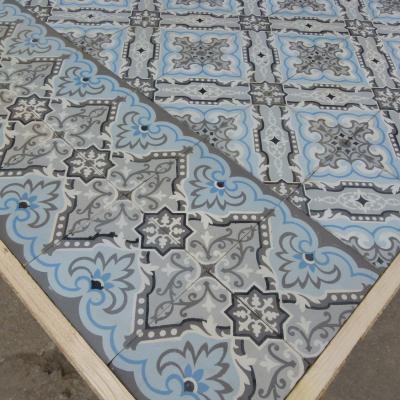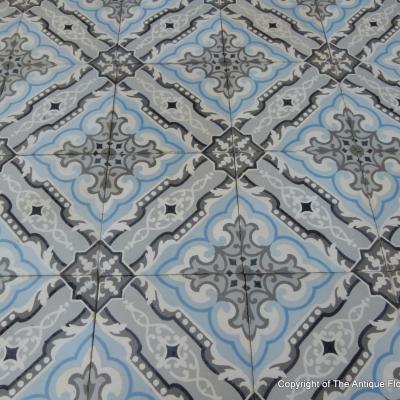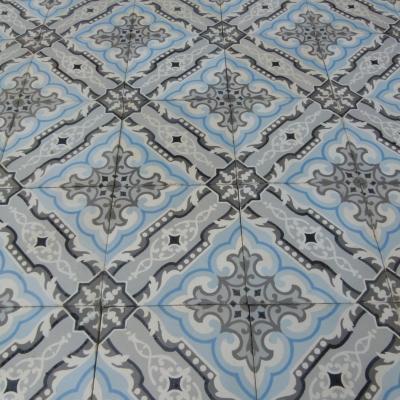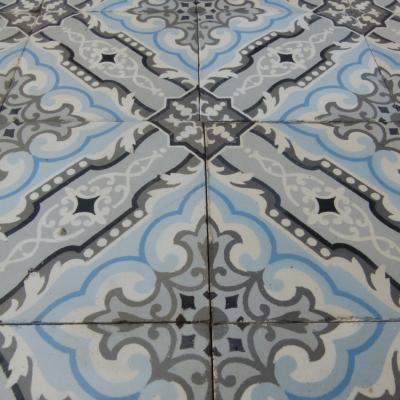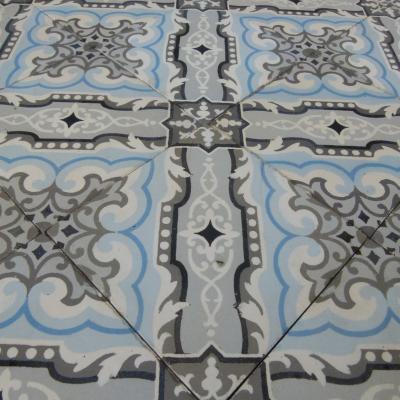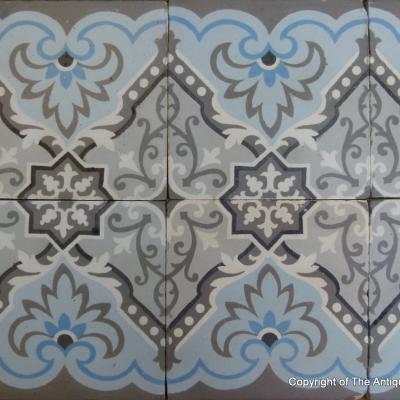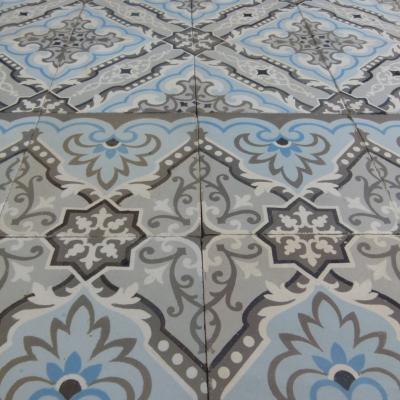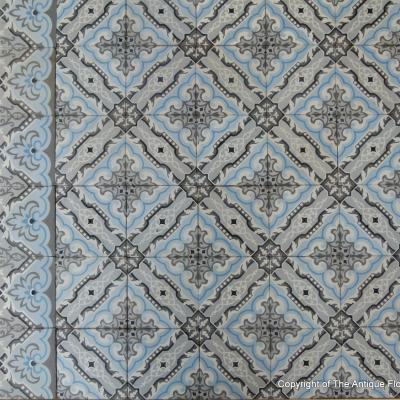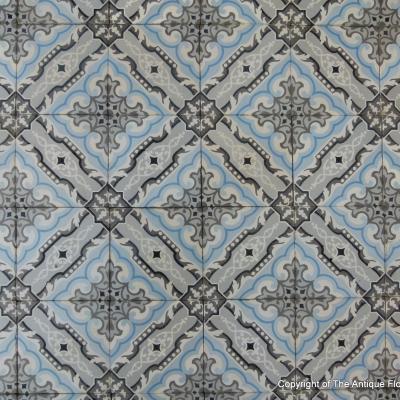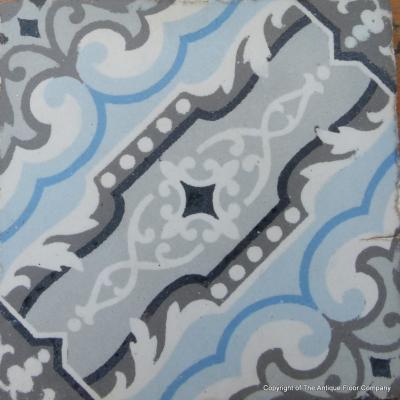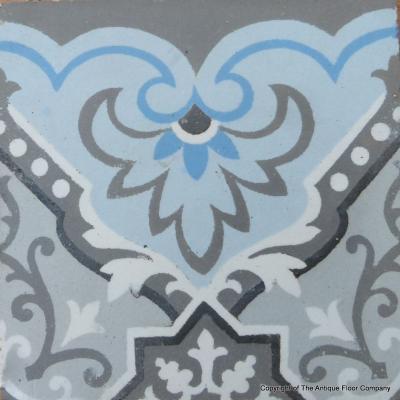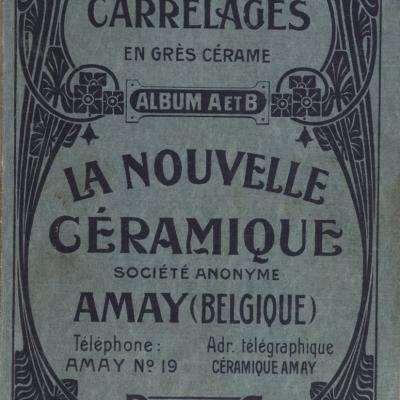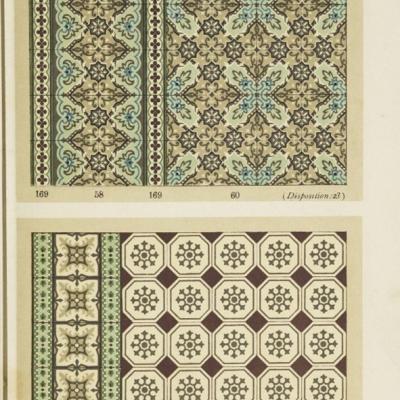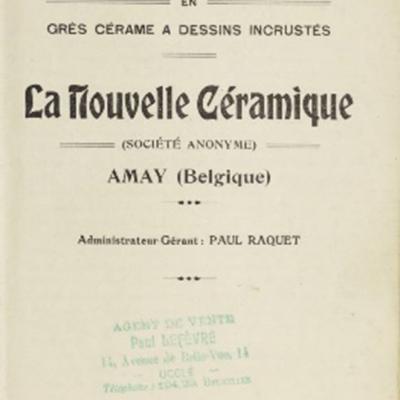11m2 Belgian ceramic - Societe Anonyme AMAY
In a cool palette of sky blue, charcoal, grey and white a 14cm field and same size border ceramic reclaimed, professionally restored and ready to re-lay.
The border can be laid as a single lay or a double back to back lay, as shown in the gallery.
Manufactured in the early 20th century by Produits Ceramiques Societe Anonyme Amay, Belgique, we include in the gallery a scan from the page of their catalogue showing the tiles.
The floor has restored well, a 15mm thick quality ceramic with a deep slip it displays occasional small chips and edge nibbles, all groutable.
As a highly fired tile, over 1,000 degrees, it can be laid inside or outside of the home and will work very efficiently with underfloor heating systems.
The photographs detail a randomly selected section of c.1.2m2.
We have previously recovered the same floor, some ten years ago, which was laid to impressive effect in the wet room of a house in Perth, Australia. We were delighted to receive photographs back from our client and they can be seen by clicking here
Tile quantities by tile type:-
FIELD - 430 tiles - 8.4m2 / 91 sq ft.
LARGE BORDERS - 130 plus 3 corners* - 2.6m2 / 28 sq ft. - 18.6 linear metres / 61 linear feet**.
* We have recovered 3 of the 8 border corners required for a back to back framing of the floor. The others can be mitre cut from regular borders.
** Halve the linear lengths for a double back to back lay as shown in the gallery.
NOTE
Antique tiles were most commonly made in single or two tile moulds. Before current computer automation methods their moulds were made my hand and the colour slips mixed by eye. Kiln temperatures could also be variable, as could the firing time. The result is that often tiles display subtle size and thickness variations and there can be tonal variations in colours, owing to the slip mixing and/or firing time. All of this makes these handmade tiles unique and adds to their charm. Some floors display their subtle variations in size and tones, some not, but when photographing we always take a random section of the floor so that it is representative of the whole. A tiler should always dry lay a section of the tiles to familiarise himself with them before starting to fix lay.
CL151



